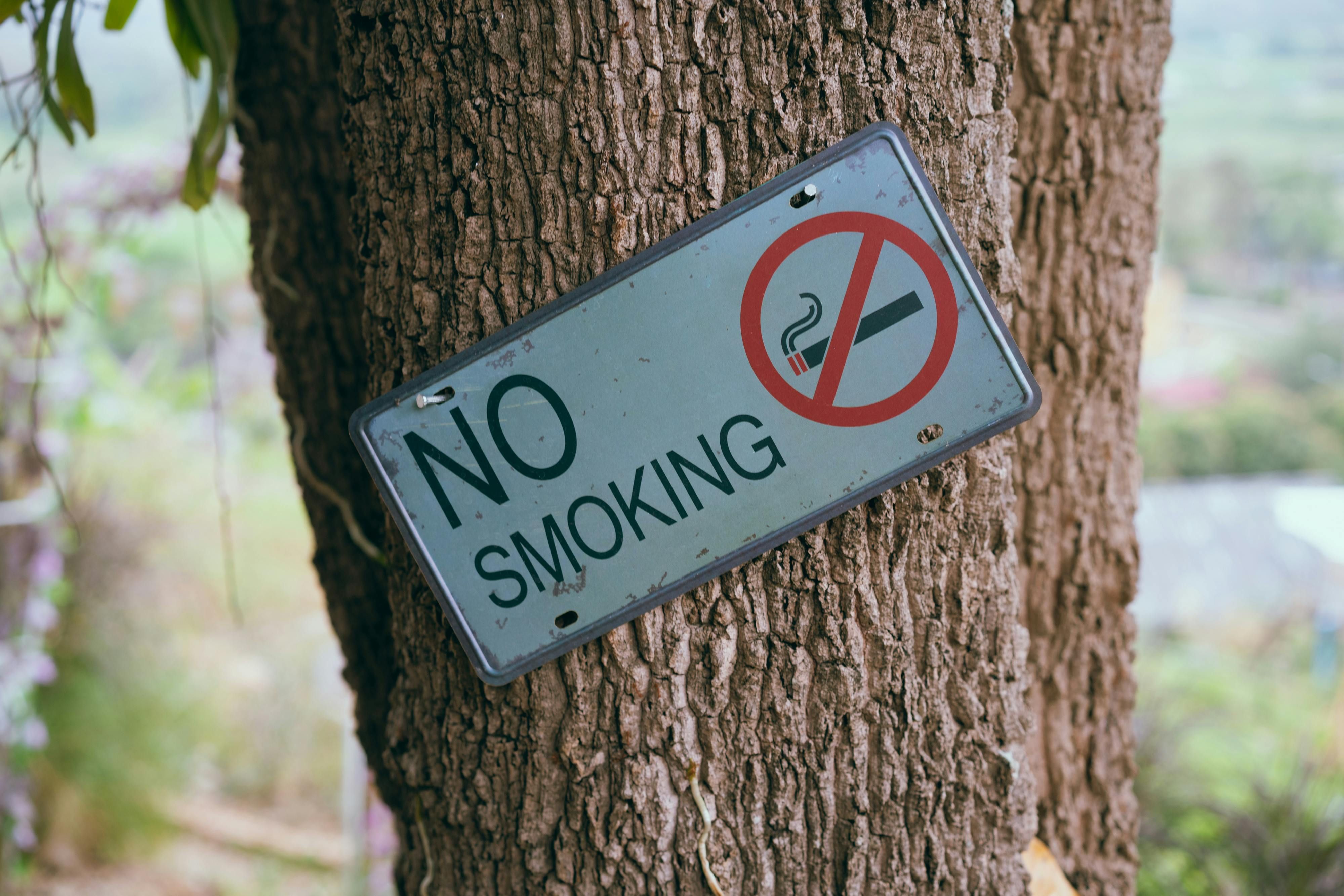
How Sound Therapy Can Help Women Lose Weight
When it comes to weight loss, there’s no shortage of methods, from trendy diets to intense workouts. But here’s a new player on the wellness stage: so...

Ladies, let’s talk about something super important: smoking. We all know it’s bad, right? But did you know that smoking can have some extra nasty effects on women’s health specifically? We’re not just talking about a cough or bad breath here; we’re talking serious health issues that can impact your life in ways you might not even realize.
If you’re a woman who smokes or knows someone who does, it’s time to get real about the risks. Understanding these dangers might just be the motivation you need to kick the habit for good. Let’s dive into the specific ways smoking affects women and why quitting now could be the best decision you ever make.

First up, let’s talk about something close to the heart for many women: reproductive health. Smoking doesn’t just mess with your lungs; it can wreak havoc on your ability to have kids.
How It Affects Fertility: Did you know that smoking can reduce your chances of getting pregnant by up to 60%? That’s right. According to Nutrients, women who smoke are significantly more likely to experience infertility than non-smokers. The chemicals in cigarettes—like nicotine, carbon monoxide, and tar—damage your fallopian tubes and can lead to scarring, making it harder for eggs to reach the uterus. Plus, smoking affects the quality of your eggs, which can increase the risk of miscarriage.
Menstrual Mayhem: Smoking doesn’t stop at making it harder to get pregnant; it also messes with your menstrual cycle. Women who smoke are more likely to suffer from severe PMS symptoms like cramps, bloating, and mood swings. And here’s a kicker: smoking can push you into early menopause—by one to four years earlier than non-smokers, according to research from the American Journal of Epidemiology. Early menopause not only affects your fertility but also means you’ll spend more years dealing with the risks associated with post-menopausal life, like osteoporosis and heart disease.
Pregnancy Problems: If you’re pregnant or thinking about becoming pregnant, smoking is a huge no-no. Smoking during pregnancy increases the risk of ectopic pregnancy, premature birth, low birth weight, and stillbirth. Plus, babies born to mothers who smoke are more likely to suffer from Sudden Infant Death Syndrome (SIDS) and face developmental challenges later in life.
Heart disease is often seen as a “man’s problem,” but here’s the truth: it’s the leading cause of death for women in the United States, and smoking is a major reason why.
Heart Health Hazards: Smoking causes plaque buildup in the arteries, a condition known as atherosclerosis, which can lead to heart attacks and strokes. But here’s something you might not know: women who smoke are 25% more likely to develop heart disease than men who smoke the same amount. This difference might be due to the way nicotine affects women’s cardiovascular systems, especially when it comes to raising heart rate and blood pressure. According to the NIH, smoking doubles your risk of having a heart attack and quadruples your risk of having a stroke.
Stroke Risks Skyrocket: If you’re a woman who smokes and also takes birth control pills, you’re in even more danger. This combination increases the risk of stroke significantly. Studies show that women who smoke and use oral contraceptives have a risk of stroke that’s 13 times higher than those who do neither. Scary stuff, right?
It’s no secret that smoking damages your lungs, but did you know that women are actually more susceptible to certain respiratory diseases than men?
COPD and Emphysema: Smoking is the leading cause of Chronic Obstructive Pulmonary Disease (COPD), which includes emphysema and chronic bronchitis. Women are 50% more likely to develop COPD than men, and their symptoms often worsen more quickly. Why? Women’s lungs are generally smaller than men’s, which might make them more vulnerable to the harmful effects of cigarette smoke. A study published in the Thorax found that even with lower levels of smoke exposure, women’s lung function declined faster than men’s.
Lung Cancer: Lung cancer kills more women each year than breast cancer, and smoking is responsible for about 85% of all lung cancer cases. Women who smoke are actually more likely to develop lung cancer than men who smoke. Research suggests that hormonal differences, like estrogen levels, might play a role in how women’s bodies metabolize tobacco smoke, increasing their risk.
And it’s not just lung cancer you need to worry about—smoking raises the risk for several other types of cancer that particularly affect women.
Breast Cancer: While the link between smoking and breast cancer isn’t as strong as with lung cancer, studies suggest that smoking, especially starting at a young age, can increase your risk. The chemicals in tobacco can damage breast tissue, potentially leading to cancer.
Cervical Cancer: Women who smoke are twice as likely to develop cervical cancer compared to non-smokers. Tobacco smoke damages the DNA of cervical cells and weakens the immune system, making it harder to fight off the human papillomavirus (HPV), a major cause of cervical cancer. According to the Tobacco Induced Diseases, smoking and HPV together create a deadly combination for cervical health.
Other Cancers: Smoking increases the risk of cancers of the mouth, throat, esophagus, pancreas, bladder, and kidneys. Women who smoke are particularly at risk due to how their bodies metabolize tobacco carcinogens. For example, female smokers are about twice as likely to develop bladder cancer as male smokers.

If you think smoking only affects your insides, think again. Smoking also wreaks havoc on your bones and skin.
Bone Health Breakdown: Smoking interferes with calcium absorption, leading to weaker bones and a higher risk of osteoporosis. Women who smoke are at a 55% higher risk of developing osteoporosis compared to non-smokers. Postmenopausal women who smoke are more likely to suffer from hip fractures, which can have serious consequences for mobility and independence.
Aging Faster: Want to look older faster? Keep smoking. The chemicals in cigarettes damage collagen and elastin, the fibers that keep your skin firm and elastic. Women who smoke are more likely to develop wrinkles around their mouth and eyes much earlier than non-smokers. In fact, research shows that smoking can make you look up to 1.4 years older than your actual age. And it’s not just wrinkles—smoking also increases your risk of developing psoriasis, a chronic skin condition that causes red, scaly patches.
The impact of smoking on mental health is another area where women are at a disadvantage.
Depression and Anxiety: Studies have found that women who smoke are 41% more likely to experience major depression than those who never smoked. Nicotine affects the brain’s chemistry, leading to mood swings, increased stress, and even anxiety disorders. If you’re already dealing with mental health issues, smoking can make them worse.
Brain Health: Smoking isn’t just bad for your lungs and heart; it’s also bad for your brain. Women who smoke have a higher risk of cognitive decline and dementia, including Alzheimer’s disease. Studies found that female smokers have a 20% higher risk of developing cognitive impairment compared to male smokers. Smoking accelerates the brain’s aging process, making it harder to think clearly and remember things as you get older.
A: Smoking affects women differently due to factors like hormonal differences, smaller lung size, and unique metabolism of toxins. Women are at a higher risk for certain smoking-related diseases, such as heart disease and lung cancer, compared to men. Women who smoke also experience more severe reproductive health issues, including reduced fertility, earlier menopause, and pregnancy complications.
A: Quitting smoking can significantly improve your health, but the extent of recovery depends on several factors, including how long you’ve smoked and your overall health. Many of the negative effects of smoking, like improved lung function and reduced risk of heart disease, begin to reverse within weeks to months of quitting. However, some damage, like that caused by long-term smoking or smoking-related cancers, may not be fully reversible.
A: Yes, many smoking cessation programs cater specifically to women’s needs, addressing unique challenges such as weight gain concerns, stress, and emotional triggers. These programs often provide resources like counseling, support groups, and tailored quit plans. You can find these through healthcare providers, local health departments, and organizations like the American Lung Association.
A: Studies suggest that women who smoke are more likely to experience depression, anxiety, and stress compared to non-smokers. Nicotine addiction can also alter brain chemistry, making women more susceptible to mood disorders. Women smokers have a higher risk of developing cognitive decline and Alzheimer’s disease as they age compared to men.
A: It’s common to gain some weight after quitting smoking, but this can be managed with a balanced diet and regular exercise. Focus on eating nutrient-dense foods, drinking plenty of water, and staying active. Many smoking cessation programs offer support and advice on maintaining a healthy weight while quitting.
A: Vaping is often perceived as safer than smoking traditional cigarettes, but it is not without risks. E-cigarettes still contain nicotine and other harmful chemicals that can negatively affect your health, including respiratory and cardiovascular systems. The long-term health effects of vaping are not fully known, and it is not recommended as a safe alternative to smoking.
A: Quitting smoking at any point during pregnancy is beneficial, but the earlier, the better. Smoking during any stage of pregnancy increases the risk of complications like preterm birth, low birth weight, and developmental issues. Quitting in the first trimester can significantly reduce these risks, so it’s crucial to stop as soon as you find out you’re pregnant.
This article is for informational purposes only and is not intended to provide medical advice. The information provided here is based on current research and guidelines, but it is not exhaustive. Always consult with your healthcare provider or a qualified medical professional before making any changes to your smoking habits, health practices, or treatment plans. Quitting smoking is a personal decision, and support from a healthcare provider can be crucial to successfully stopping smoking and improving your health.
The consequences of smoking for women are serious and far-reaching, affecting everything from your reproductive health to your bones, skin, and brain. While quitting smoking is challenging, the benefits are undeniable. Women who quit smoking can significantly reduce their risk of many health issues, improve their overall quality of life, and increase their life expectancy.
If you’re ready to quit, there’s no better time than now. There are many resources available to help, including counseling, medications, and support groups. Remember, it’s never too late to quit smoking and take control of your health. The sooner you quit, the sooner your body can start healing, and the better your chances of living a longer, healthier life.
So, what are you waiting for? Your future self will thank you for making the choice to live smoke-free.

When it comes to weight loss, there’s no shortage of methods, from trendy diets to intense workouts. But here’s a new player on the wellness stage: so...

Breathing is something we all do without thinking, but did you know that how you breathe can impact your weight loss journey? That's right! Breathwork...

Social media is everywhere, and let’s be honest—sometimes it feels like it’s controlling our lives. Whether you’re scrolling through Instagram, TikTok...

Quitting smoking isn’t easy. For many women, it’s one of the toughest battles they’ll face. But the good news is, 2024 has brought new tools and strat...

Losing weight is challenging for many people, but for women grappling with depression, it can feel especially overwhelming. depression impacts various...